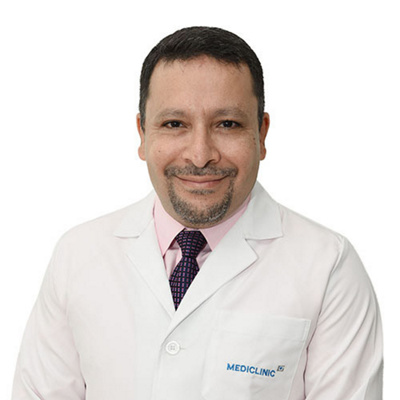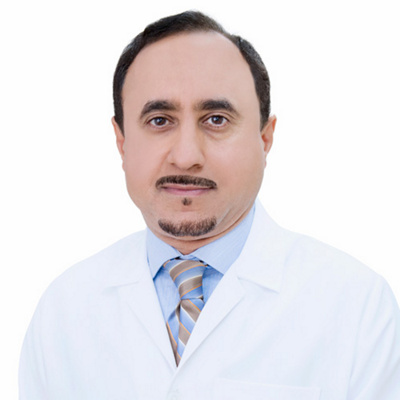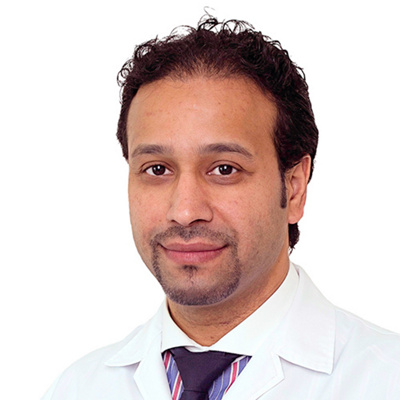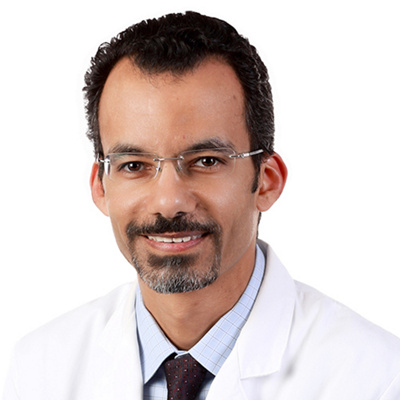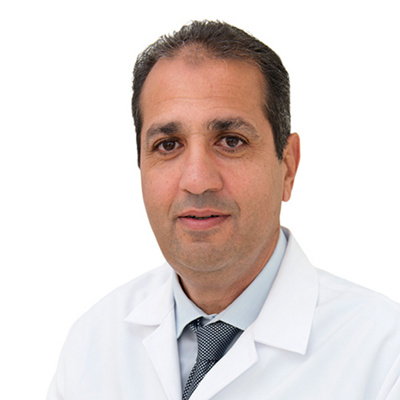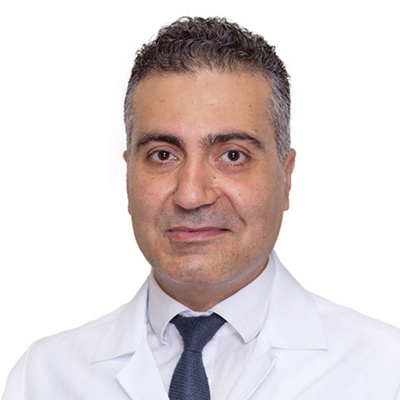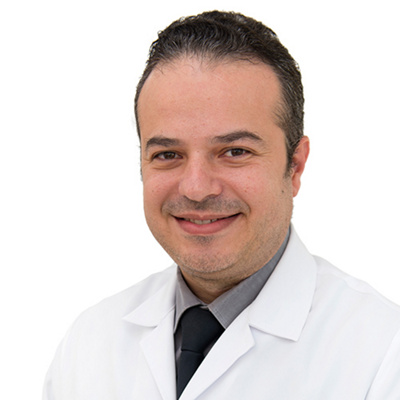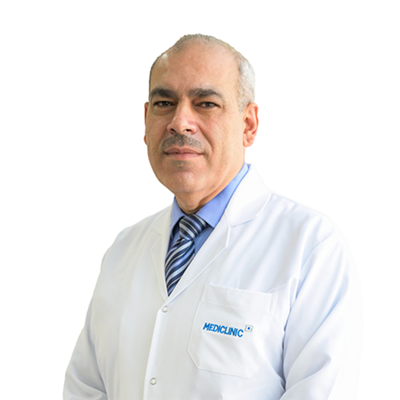Dr. Sameh Ahmed Farouk
Specialist Cardiologist
Mediclinic Welcare Hospital
Cardiac Arrhythmias
Cardiac arrhythmia is also known as abnormal heartbeat. As the name suggests, abnormal heart beat is diagnosed when the heart beats too fast, too slow, too early or irregularly.
In some cases cardiac arrhythmia may be harmless, however, if it is severe or is a result of a diseased heart, it can have very serious implications.
These conditions may arise when the electrical signals to the heart that coordinate heartbeats do not work properly. Arrhythmia can be initiated from atria, ventricles or conductive system.
Symptoms:
Some arrhythmias have no associated symptoms however common symptoms include:
- Palpitations
- Chest pain
- Shortness of breath
- Dizziness
- Fainting
Causes:
A number of factors can cause the heart to work incorrectly, these include:
- Heart disease: congestive heart failure, ischemic heart disease, valvular heart disease, cardiac muscle disease , congenital heart disease , hypertension, primary electrical instability and conduction defects.
- Metabolic factors: Electrolyte disturbances, alcohol and drug abuse, diabetes, thyroid dysfunction.
- Other factors: smoking, excessive coffee intake, mental and emotional stress, certain medications, some dietary supplements and herbal treatments, central causes.
Treatment:
Treatment for arrhythmia is only required if the condition is putting the patient at risk of a more serious arrhythmia or a complication, or if the symptoms are very severe.
Treatments for tachycardia (faster than normal heart rate)
There are several different treatments for this condition:
- Vagal maneuvers
- Medications
- Electrical cardioversion
- Ablation therapy
- ICD (implantable cardioverter-defibrillator)
- Surgical procedure (Ventricular aneurysm surgery, coronary bypass surgery)
Treatments for bradycardia (slower than normal heart rate)
- A slow heartbeat is not always a sign of illness
- Treatment of underlying condition
- Medications
- Pacemaker implantation. A pacemaker is a small device that is placed under the skin of the chest to help control abnormal heart rhythms.

